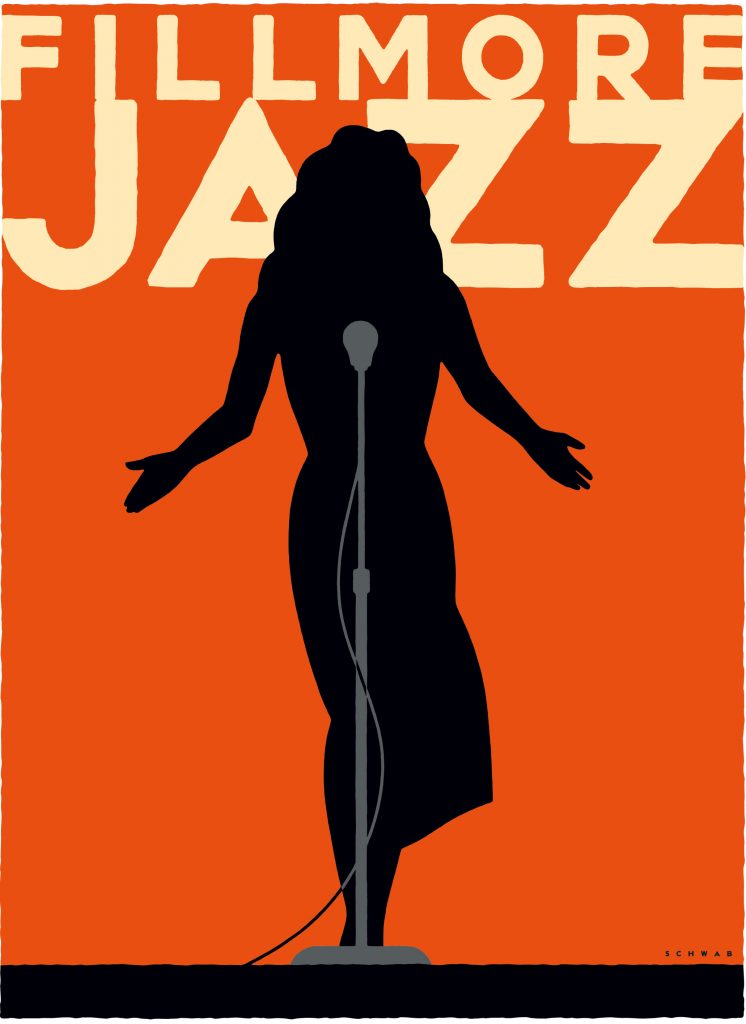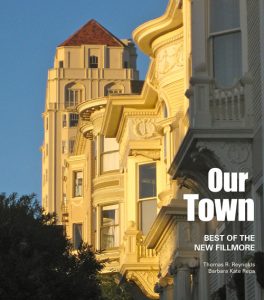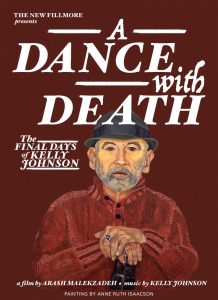CRIME WATCH | Chris Barnett
The familiar sight of shattered glass in the gutter is hard evidence of a crime that plagues local residents, visitors and shoppers alike. Anyone with a car is a potential target. Smash-and-grab thieves don’t care if it’s a Mini Cooper or a Maserati.
You’d never know it from walking the blocks around Fillmore Street, but according to police statistics, auto burglaries are actually down 7 percent from a year ago in the Northern District, which includes much of the neighborhood. Captain Ann Mannix reels off the local numbers: 1,037 vehicle bust-ins for the first eight months of this year, compared to 1,132 during the same period last year.
Citywide, auto break-ins are up 6 percent — including the Park District, which covers most of the neighborhood west of Steiner Street.
While the auto burglary figures from the police department may indicate trends, they are not remotely comprehensive, since many — perhaps most — of those who suffer a loss don’t file a police report.
High-tech specialist Alvin Johnson, who lives on Sacramento Street, is a typical example. Recently he heard glass shatter nearby around midnight. “I thought to myself, ‘Uh-oh, someone’s car is being broken into,’ ” he says. “But I had no idea until the next morning it was mine.”
The thief smashed a side window but got away with only a roll of quarters and a baseball cap. Johnson didn’t file a police report or notify his insurance company. “My insurance premiums are high enough and I didn’t want a break-in to affect my rates,” he says. “I found blood in the car, so whoever did it cut themselves. That was my consolation.”
When she lived on Pierce off Pine, writer Karen Horton’s car windows were shattered several times. “Once I had an empty cardboard box in the car and when I came out in the morning, the windshield and two side windows were smashed,” recalls Horton, who also didn’t file a police report, figuring it wouldn’t merit an investigation. But she did notice that some neighbors actively try to discourage thieves.
“A guy who lived around the corner from me left a sign on his car that read ‘It’s unlocked. Take anything you want. Just don’t break the windows,’ ” she recalls.
The crime of auto burglary is mired in myths. For instance, failing to report a break-in to your auto insurer because you feel a small loss will boost your premiums is a mistake. “California state law says your rates can only go up if you cause an accident or have a moving violation,” says Jeff Johnson, an agent with the State Farm Insurance Co. office on Divisadero Street.
However, personal possessions stolen in a break-in are not covered by auto insurance, says Johnson. “That’s why we tell people to carry renter’s insurance or condo insurance.” Otherwise, if you lose a laptop or a smartphone or anything not attached to the car and you don’t have some kind of personal property protection, you’re out of luck.
And burglars don’t just ply their trade on quiet side streets late at night. San Francisco jeweler Jay Yadegar recently parked his BMW on Nob Hill outside a friend’s house at 2 p.m. and went inside for 20 minutes, leaving his iPhone plugged into the cigarette lighter to charge. “When I came out, the passenger window was smashed and the phone was gone,” laments Yadegar. “It’s almost as if someone was following and watching me.”
They often are. “Opportunists are walking the neighborhoods 24/7 looking for cars with stuff inside, period,” says Captain Mannix of Northern Station. “The crime happens very quickly. Five minutes or less. I have a simple message: Don’t leave anything of value in your parked, locked or unattended car.”
Mannix says the greatest number of auto burglaries are committed in tourist areas such as Japantown or St. Mary’s Cathedral or at the Exploratorium parking lot. “Tourists, especially from smaller cities, aren’t as aware of the crime potential as big city people are and they often leave their packages and even their purses in their cars in plain sight,” she says.
But not just any products are prized by thieves. Says Mannix: “Number one is the MacBook Pro and number two is the iPhone.”
Mannix says the neighborhood’s residential side streets off Gough, Geary, Post, Bush and Pine are prime locations for concern because once a car is parked, it’s usually there for the evening.
Captain Gregory Corrales of Park Station says auto burglars keep up with the times, especially in San Francisco.
“Twenty years ago, thieves broke into cars to steal the radio,” he says. “But you can’t get the radio out of these modern cars and if you do, they don’t work.” However, for experienced car-crackers, a removable auto stereo system or a GPS on the dashboard is irresistible.
“Sometimes they work in two-person mobile teams,” says Corrales. “One is driving and stays in the car. The other is outside targeting vehicles, popping trunks without breaking a window whenever possible.
“But if a car window needs to be broken, they’ll use the auto burglar’s standard tool — a spark plug,” he says. “Easily hidden in the palm of the hand, the spark plug quickly and quietly shatters a car’s side windows.”
The two police captains agree that sharp-eyed citizens are their best allies in combatting auto burglary crime. “If you see a car break-in occurring, call 911 and we’ll respond,” says Mannix. “Or if you know it just occurred, call 911 because there is a potential for evidence. Or if it’s cold — say two hours or longer — call 311 and we’ll take the police report over the phone.”
Auto insurance agents are divided over whether to contact the cops on a cold case. “Frankly, it’s fruitless,” said one. But Irja Carrie, owner of R. Carrie Insurance Agency on Sutter Street, disagrees. “Victims should file a police report so the department’s theft figures are more accurate,” she says. “It can increase awareness and possibly help spot patterns.”
Auto burglars are difficult to catch and tougher to lock up. Corrales says auto burglars arrested for the first time get probation. But if they break in again while on probation, he says, their probation will be revoked and they’ll get a year in jail.
“The biggest factor is their record,” he says. “The more prior convictions, the more seriously we treat it.”




